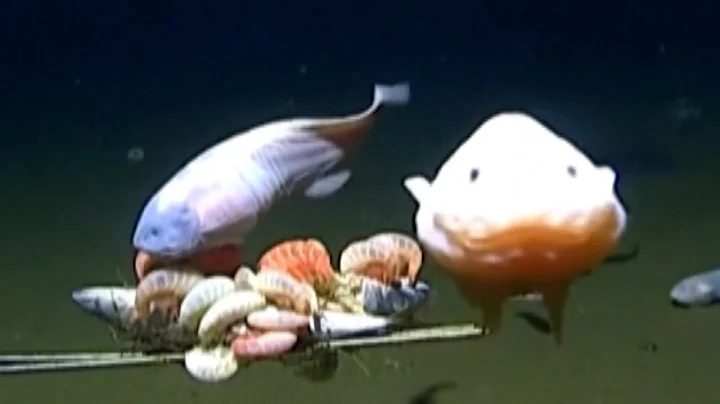In this life, people are always seeking independence, but they have to establish various relationships with other people. This seems to be the fate that humans are destined to have since birth. The relationship between parents and children is the most primitive and multi-dimensional relationship that cannot be completely severed. This is like a hymn to life, a gift from the gods, but also like a curse from fate and a shackles from the world.
A person cannot survive alone in the world. With the development of science and technology, this situation is becoming more and more realistic. While technology has brought a lot of convenience to humans, it has also domesticated humans. Today, disconnection of the Internet, power, and water will bring great difficulty to human beings to adapt. Everyone will have an indirect relationship with other people because of the existence of "things". Human creations are essentially substances condensed by humans after compressing the time process. From a technological creation, what we see is not only the profoundness and sophistication of this creation, but also the experience of generations of ancestors who have worked hard.
The relationship between matter condenses time
If we take a grain of sand on the ground as the initial unit 1, then a high-rise building is the process of 1 being constantly transformed in the long river of human history. This 1 has traveled through thousands of years, from From the primitive era of living like hair and drinking blood, to today's information age. If a person who knows nothing is asked to use a grain of sand to develop connections and build a building, it is completely impossible. Because whether it is civil engineering, geometry, materials science , mechanics, decoration theory, physics, etc., all the knowledge is concentrated in one building. A residential building that seems to be everywhere, but the reason why it is everywhere and unremarkable is that human beings have become accustomed to compressing these past times together. Human beings have learned to recognize objects and establish relationships with objects. They have also learned to preserve these relationships so that future generations will no longer need to walk the same path they have traveled.

Picture source network: "Refining Formation" in the art work
At first there was a stone, and then it was discovered that there was iron ore in it. Countless people studied how to refine it, and finally refined the substance iron. Subsequently, many people studied the function and value of iron and discovered that it could be smelted to create iron tools. When we see a brilliant high-tech computer, can we see the "iron tools" in its structure? Have we noticed that these fine iron tools were once just pieces of stone? The vast ocean is the epic of mankind. Computers were not created all at once, but took countless attempts over countless generations to become what they are today. The reason why computers can be mass-produced today is simply because our predecessors have helped us overcome those pitfalls, and we don’t need to do it again.
The relationship between humans and man-made objects
Everyone, as long as he uses the tools created by humans, is equivalent to having contact with human society. Although this connection of is hidden in our daily lives, we are rarely aware of it. After all, when we play with mobile phones, we don't need to think about how the mobile phones generate electricity, we just need to know how to use the mobile phones. But once the power goes out, we will desperately want a mobile phone that "never cuts off power". Such motivation forces humans to research new energy technologies in an attempt to get rid of the limitations of electricity.
In this case, we will understand immediately. The so-called "independence from the world", the so-called "otaku clan", and even the idea of "not wanting to have anything to do with anyone" are just illusions. Since people are in society, they are part of society. All the tools used by people are products of society. Today's world has been completely connected by a force. In fact, it is difficult to find two completely unrelated artifacts in this world. At the very least, it must have a set of connections: people and things.
We often talk about "man-made things", so are people a kind of "man-made things"? Don't deny it yet. We might as well observe human growth and development with a way of thinking that transcends sensibility. A person is also a kind of material.The biggest difference between humans and ordinary "man-made objects" is that humans are alive. Cabinets, tables, and chairs are all inanimate, but children are alive.

Picture source network: Screenshot of the live-action version of "Steel Refining"
Are people objects?
Are people objects? Why can't people be things? Why are people objects? Do people have the same rights to themselves as people have to things? If people are things, then we must distinguish between people and natural things. In other words, people cannot be separated from people. At the very least, without parents, there would be no person born. In the same way, it is difficult for people to survive in this society without the support of others. What we are currently considering is the age of man, not the age of primitive apes.
Human beings can only be regarded as a special kind of "artifact". Why is special? Because people need to be distinguished from still life. Humans cannot be ordinary animals, plants, or microorganisms. Because these three can survive without people, and may even live better. But people can't. It is almost impossible for a person with no educational background, no literacy, and no knowledge of human common sense to survive in a barren mountain wilderness without any human activities. Wilderness survival experts like Robinson Crusoe, Neil Buchanan and others were able to survive in the wilderness only after possessing "wild survival knowledge created by man and a series of human technical knowledge".
People themselves carry the attributes of things. This is a three-dimensional object with length, width and height. Every person is a substance located in this larger material space. From the point of view of physical existence, humans and other animals, plants, and still life (man-made objects) are all the same. Human beings and a series of abstract concepts such as "love", "rationality" and "future" are different because the latter do not have a specific form.
If one person is regarded as a "thing" and another person is regarded as a "person", then does the relationship between people become the relationship between "people and things"? If so, who is dictating who should be a "person" and who is dictating who should be a "thing"? Why are the same two people, and two people who also have the attributes of "things", so different? "Reification" itself is a normal concept of existence. That is, only "material" things can exist in the "material world". But the "objectification" at this time seems to treat the objectified people as pure objects. However, the problem is that human beings themselves are a kind of material and serve the material world. "Materialization" is a natural reality.
The problem does not lie in the existence of "materialization", but in the motivation and source of "materialization". How do people treat "things"? How should people treat "things"? We can do whatever we want with what is ours. So do people belong to someone? If a person is "objectified", who does he belong to? Who decides who he belongs to? In addition to the clear biological basis of blood relations, what concrete material evidence is there for this series of "materialized" relationships? Since there is no such thing, why can 's "materialization" drive both the materializer and the materialized person at the same time?





















